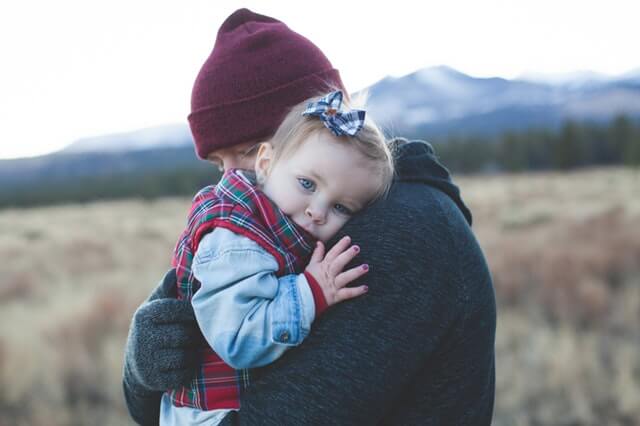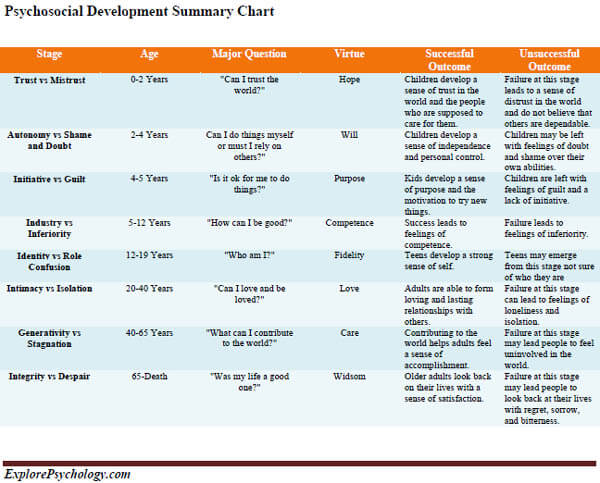Basic Trust vs. Mistrust in Psychosocial Development
Building trust in infancy lays the foundation for emotional security, while early mistrust can ripple through a lifetime. Psychologists explore how this critical stage shapes our ability to form relationships and face challenges.

Basic trust vs. mistrust is the first stage of psychosocial development, where infants learn whether they can rely on others to meet their basic needs. During this crucial period, babies develop either a fundamental sense of trust in the world and their caregivers, or a lasting feeling of uncertainty and suspicion.
Some key points about basic trust vs. mistrust include:
- This stage occurs from birth to around 18 months of age, laying the groundwork for all future emotional and social development
- During this time, babies learn whether the world is a safe, predictable place through their experiences with caregivers who either consistently or inconsistently meet their needs
- When trust is established, children develop confidence, security, and hope, making it easier for them to form healthy relationships and cope with challenges throughout life
- If mistrust develops instead, children may grow up feeling unsafe, anxious, and struggling to form close relationships or trust others, potentially affecting their mental health and social connections
Understanding Trust vs. Mistrust
Babies aren’t born knowing whether to trust the world around them. Instead, they learn this through thousands of small experiences every day. Examples of some building blocks of trust include being fed after crying from hunger or being comforted and being scared.
Trust in babies looks like feeling safe and secure. You can see it when they calm down quickly after being upset, or when they smile at familiar faces. Babies who are developing trust will often play and explore confidently when their caregiver is nearby.
Mistrust develops when babies can’t count on having their needs met. Maybe they cry, but no one comes, or maybe different people care for them in confusing, inconsistent ways. These babies might become withdrawn, easily upset, or very difficult to comfort.
The key to this stage is consistency. Babies need regular routines and reliable care to make sense of their world. They’re like little scientists, constantly testing to see what happens when they have a need. Will someone help them? Can they count on it? The answers to these questions shape their view of the world.
What matters most is the overall pattern of care they receive. When care is mostly reliable and loving, babies learn that they can generally trust the world around them, even if things aren’t perfect all the time.
The Role of Caregivers in Trust vs. Mistrust
Parents and caregivers are who establish trust during this crucial stage. Their daily actions create a foundation for how the baby will view relationships throughout life. The most important thing caregivers can do is respond to the baby’s needs in a predictable way.
Building trust happens through simple, everyday moments. When a baby fusses at naptime and their caregiver helps them settle down, trust grows. When they reach for a toy and someone helps them grasp it, trust deepens.
Each positive interaction is like making a small deposit in the baby’s emotional bank account.
Here’s what trustworthy caregiving looks like:
- Picking up the baby when they cry rather than letting them “cry it out”
- Feeding them when they show signs of hunger instead of strictly following a schedule
- Speaking in gentle, soothing tones even when feeling frustrated
- Creating consistent routines for feeding, sleeping, and playtime
- Showing up emotionally, even on hard days
Caregivers face real challenges in this stage. Being consistently available is exhausting, especially with work demands, other children, or limited support. Many parents worry they’re not doing enough. It’s important to remember that “good enough” parenting – being present and reliable most of the time – is what babies need. Perfect consistency isn’t possible or necessary.
Even the most dedicated caregivers sometimes miss their baby’s cues or respond with less patience than they’d like. What matters most is the pattern of care over time, not individual moments. When caregivers make mistakes, they can repair the relationship by returning to consistent, loving care.
Signs of the Development of Trust vs. Mistrust
Watching for signs of trust or mistrust can help caregivers understand how their baby is developing. These signs show up in everyday behaviors and interactions, telling us whether a baby feels secure in their world.
Signs that a baby is developing trust:
- They look for their caregiver when upset, showing they expect comfort
- They smile and coo during social interactions, especially with familiar people
- They can fall asleep relatively easily when tired
- They settle down quickly after being upset if someone helps them
- They show curiosity about their environment when feeling secure
Signs that a baby might be developing mistrust:
- They don’t seek comfort when distressed
- They seem withdrawn or avoid eye contact
- They’re difficult to soothe, even with attention and care
- They show little interest in social interaction
- They appear tense or anxious much of the time
Every baby develops at their own pace, and it’s normal to see a mix of these behaviors. What matters most is the overall pattern. A baby who generally shows signs of trust might still have fussy days or times when they’re harder to comfort.
If caregivers notice their baby showing consistent signs of mistrust, they shouldn’t panic. Early intervention can help shift the pattern. Sometimes simple changes in caregiving style make a big difference. Other times, talking with a pediatrician or child development specialist can provide helpful guidance.
Even if trust hasn’t developed as strongly as hoped, there’s always room for positive change through consistent, loving care.
Long-Term Effects of Trust vs. Mistrust
The trust vs. mistrust stage creates ripples that extend far into a person’s future. Think of it like building the foundation of a house – what happens during this early stage affects everything built on top of it.
When babies develop basic trust, they gain more than just the ability to feel secure. They learn that the world is a place where good things happen and people can be counted on. This early trust becomes a kind of emotional toolkit they carry through life.
Benefits of established trust:
- They form healthy relationships more easily
- They bounce back better from disappointments
- They feel more confident trying new things
- They develop a stronger sense of self-worth
- They handle stress better as they grow older
When mistrust becomes the dominant pattern, it can create ongoing challenges:
- They might struggle to form close relationships
- They often find it hard to trust others’ good intentions
- They may develop anxiety or fear about depending on others
- They might have trouble believing in their own abilities
- They could be more likely to expect the worst in situations
It’s important to understand that early mistrust doesn’t doom someone to lifelong problems. While this stage is important, people can develop trust later in life through positive relationships and, sometimes, therapy.
The brain remains flexible, especially in childhood, allowing for positive changes with the right support.
However, building trust early is like learning a language young – it’s simply easier than trying to learn it later. This is why child development experts put so much emphasis on creating secure, loving environments for babies.
Tips for Developing Health Trust (vs. Mistrust)
Creating a trust-building environment doesn’t require special training or expensive toys. Instead, it’s about consistent, responsive care that makes babies feel secure and understood.
Practical Tips for Parents and Caregivers:
- Respond to crying promptly – this shows babies they can count on you when they need help
- Keep daily routines predictable – regular mealtimes, naps, and bedtime help babies feel secure
- Make eye contact and smile during everyday activities like feeding and changing
- Talk or sing to your baby often, even if they can’t talk back yet
- Show affection through gentle touch, hugs, and holding
- Play simple games like peek-a-boo that teach them you’ll always come back
Simple Trust-Building Activities:
- Mirror your baby’s expressions and sounds during playtime
- Name their emotions as they experience them (“You seem frustrated”)
- Stay nearby while they explore, offering a secure base
- Use gentle physical games like “This Little Piggy”
- Read together daily, even for just a few minutes
When to Seek Help:
- If your baby seems withdrawn or rarely makes eye contact
- If they’re consistently difficult to comfort
- If you’re struggling to feel connected to your baby
- If you feel overwhelmed or unable to provide consistent care
- If you notice sudden changes in your baby’s behavior
Asking for help isn’t a sign of failure – it’s a sign of good parenting. Support might come from family members, pediatricians, or mental health professionals who specialize in infant development. The earlier you seek help, the better the outcomes tend to be.
Next: Stage 2: Autonomy vs. Shame and Doubt
Sources:
Nusser, L., Zimprich, D., & Wolf, T. (2023). Themes of trust, identity, intimacy, and generativity in important autobiographical memories: Associations with life periods and life satisfaction. Journal of Personality, 91(5), 1110–1122. https://doi.org/10.1111/jopy.12786
Orenstein GA, Lewis L. Erikson’s stages of psychosocial development. In: StatPearls. StatPearls Publishing; 2024. https://www.ncbi.nlm.nih.gov/books/NBK556096/
Pitula, C. E., Wenner, J. A., Gunnar, M. R., & Thomas, K. M. (2017). To trust or not to trust: social decision-making in post-institutionalized, internationally adopted youth. Developmental Science, 20(3), 10.1111/desc.12375. https://doi.org/10.1111/desc.12375





